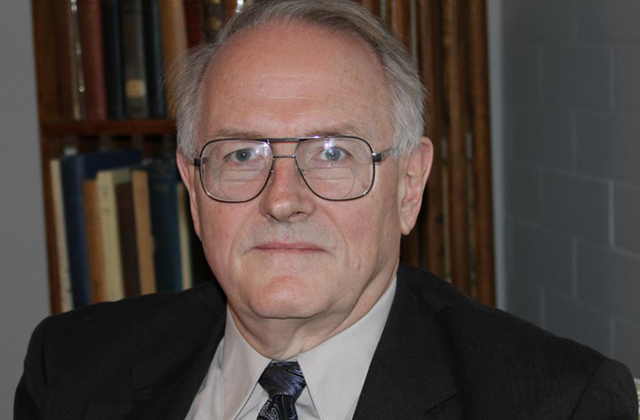“After January 20 we’ll yet feel Obama’s policy around Karabakh conflict”

U.S. president-elect Donald Trump’s inauguration ceremony will take place on January 20 in Capitol Building in Washington, D.C. By that he will officially take the Oath of Office.
From January 20 basically the activity of the Office of the president-elect will be launched. After the elections, both Trump personally and his advisers stressed in their public remarks that after the inauguration ceremony Trump will clarify both domestic and foreign policies.
In particular, reflecting to Trump’s posture on imposing new possible sanctions against Russia, his advisor Kellyanne Conway stated that the president-elect should make a decision on issues of security and intelligence with his team. “When he becomes president after January 20 and he meets with his security and intelligence team, he as President Trump, will make a decision on what to do,” she said.
It should be stated that Republicans Lindsey Graham and John McCain advised Trump to maintain and proceed with the policy of anti-Russian sanctions, which Barak Obama’s administration has started. Trump also informed through his Twitter microblog that changes will be recorded in a range of issues yet from January 20.
It’s not clear either whether U.S. engagement with NK conflict settlement will change or not, as Donald Trump has never touched upon NK conflict and the South Caucasus. “168 Hours” interviewed Paul A.Goble, special adviser to Secretary of State (1990s), prominent Analyst on Soviet Nationalities, presently Professor at the Institute of World Politics (IWP), columnist, touching upon what changes should be anticipated from January 20 from Trump’s foreign policy.
It’s noteworthy to mention, Paul A.Goble has worked as the Director of Research and Publications at Azerbaijan Diplomatic Academy (Minister of Foreign Affairs of Azerbaijan) for many years.
According to Paul A.Goble a few developments are possible, which may have a surprising course in most important issues. Goble considers Trump is a more global figure, intending to have his investment in global issues, record a breakthrough in Russia-USA relations, USA-international organizations, USA-China relations.
“Trump considers the U.S. active foreign policy will be restricted by the cooperation of the USA and powers equal to the USA through focusing on domestic issues. However, its possible influence isn’t so definite, i.e. we can’t say for sure that this policy will have positive implications on Russia and negative implications on Russia’s neighbors, from which the Trump administration will strive to keep distance not deliberately by pursuing passive policy in these regions. I attached great attention to Trump’s pre-election promises.
Trump promised industrial modernization, including elimination of restrictions in the field of energy. If he keeps his promise, Russia’s economy will be pushed back by a few points, which is rolling into the abyss/depth as a result of drop in price for energy resources. Regarding new possible sanctions, which should come into force due to recent disagreements in Russia-USA relations, upon the proposal of several senators, I think, won’t be approved by Trump, as he isn’t tended to enlarge sanctions.
However, the reason, which led to unleashing of such sanctions, hasn’t been eliminated for the USA, thus, I consider, current sanctions will be maintained, however, there won’t be new measures against Russia. I think it’ll also be enough for Russia what Trump will do inside the country,” the diplomat said.
Paul A.Goble is of the opinion that in this case it isn’t even important who will be appointed as U.S. Secretary of State, as everything is clear in U.S. foreign policy. “However, I’ll say there may be surprises for some countries, as Trump won’t agree to withdraw positions of the USA in international turmoil, which Russia will realize with time.”
He believes, what relates to Russia’s neighboring regions, including the role of the U.S. in NK conflict in the period of Trump administration, issues for this administration in these fields will be secondary, headed by secondary officials, which means, that the policy of the previous administration will continue.
According to him in this issue nothing essential will change after January 20 as compared to Russia-USA, USA-China relations, which means that we’ll feel the influence of Obama’s team.
“Of course, this won’t be a positive development for NK conflict and Armenian issues. Maybe Russia will make use of the passive position of the USA, moving forward its personal traditional game in Karabakh, in which Moscow’s gift may be Baku. Of course, in case of such state of affairs Armenian interests will be subordinated. But I’m sure, that bargains may yet continue for a long period, up to Iran-Azerbaijan-Russia railway route development, and it’s yet in the stage of shaping,” Paul A.Goble said.
He also stated that Richard Hoagland, newly appointed U.S. Co-Chair of OSCE MG, has passed on to his duties and continues the work.
“I think, here we won’t edify news. The U.S. has expressed its position and continues its co-chairmanship based on those principles,” the expert said.
By Araks Martirosyan

























